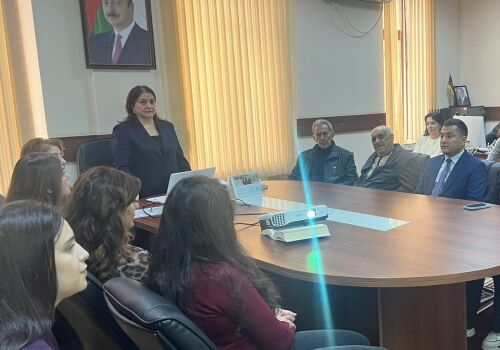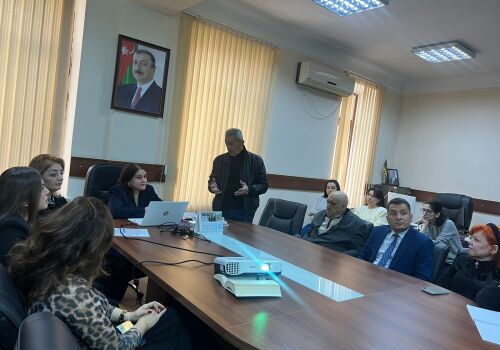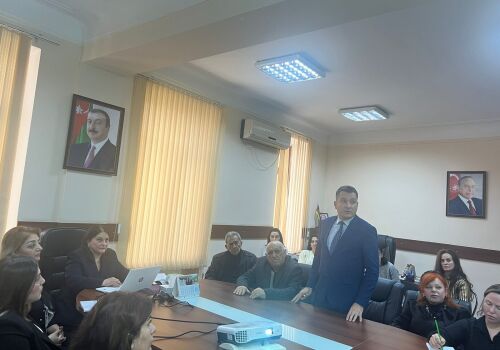A round table was held on the topic "Environmental situation in the South Caucasus: comparative analysis of state policies, threats and prospects"
On November 25, a round table was held on the topic "Environmental situation in the South Caucasus: comparative analysis of state policies, threats and prospects" in connection with the Decree of the President of the Republic of Azerbaijan Ilham Aliyev dated December 25, 2023 on the "Year of Solidarity for a Green World" in the Republic of Azerbaijan in 2024. The round table was opened with an introductory speech by Ramila Dadashova, Doctor of Political Sciences, Associate Professor, and Acting Director of the Institute. She emphasized that the creation of "green energy" types and their transportation to world markets is a priority of the energy policy of the Republic of Azerbaijan, and that the holding of the Conference of the Parties to the UN Framework Convention on Climate Change - COP29 in Azerbaijan is another shining example of our state's "soft power" policy under the leadership of President Ilham Aliyev. She brought to attention the words of President Ilham Aliyev about the priority of the state policy of the Republic of Azerbaijan in solving environmental problems: "Attention and attitude to environmental issues are also a manifestation of the general policy and general culture of our country." Ultimately, this is the most important area. Oil and gas are finite resources. They have temporary importance. But nature, the environment – this is a permanent asset. For centuries, for millennia, nature has existed, the universe has existed, the world has existed. Our duty is to protect it. Let's protect it for ourselves, for future generations, and for the survival of our country. That is why we attach great importance to these issues. "We are working to ensure that Azerbaijan is at the forefront of implementing environmental programs." Ramila Dadashova also gave an extensive report on the topic "Environmental situation in the South Caucasus: comparative analysis of state policies, threats and prospects". Then there were discussions.






